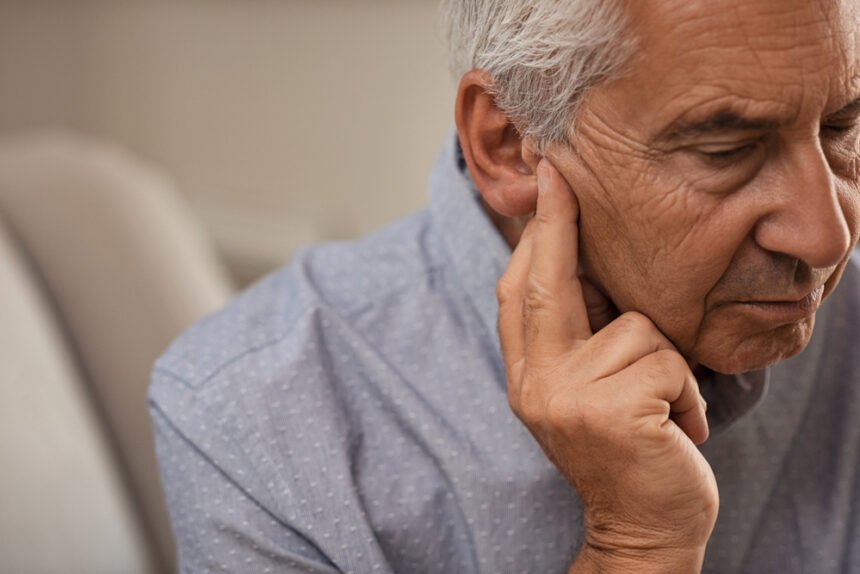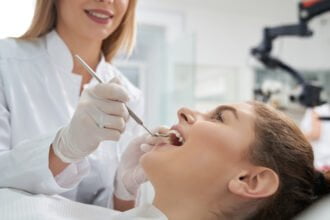Take a good look at the checklist below. Are you guilty of any of these things?
- Listen to music for long periods with earphones every day
- Visit loud, buzzy concerts regularly
- Live or work near noisy machines, gadgets, or equipment
- Visit sports stadiums regularly
- Spend time near fireworks displays
- Frequent movie theaters
Be frank, are you guilty? If you are, then I’m afraid you risk becoming a part of the 19% of Canadians predicted to suffer mild hearing loss.
Believe it or not, the issue of hearing loss is no longer a one-off thing. It’s now officially a disease plaguing our environment, so much so that many now live off the help of hearing aids provided by audiologists like Houseofhearing.ca.
In this post, we’re going to highlight some everyday habits that pose a threat to your ears.
7 everyday things we do that can trigger hearing loss
- Frequent movie nights out
According to some reports on Statista, 57.62 percent of Canadians had visited a movie theater in the last 12 months. Clearly, people don’t joke with their movies.
But guess what?
Noise levels at a movie theater can run from anything between 70 and 100 decibels. To put that into perspective, that’s the same range of noise levels generated by a coffee grinder (70 dB) and a factory machine (100 dB).
In other words, frequenting the cinema every day is almost the same as sitting next to factory machinery every day. I don’t think you need anybody telling you how risky that is.
Quick Fix: It is obvious that Canadians cannot do without their movies. Therefore, we recommend getting quality hearing aids from ear doctors like Houseofhearing.ca or buying earplugs from a nearby store. In addition to making you hear better, hearing aids can also filter out background noise.
- Zipping through traffic on a motorcycle
For so many people, choppers are the best way to beat those early morning traffic congestions. With them, you never have to run late to work or miss your appointments.
But guess what?
The classic vroom vroom of a motorcycle engine is just as bad for your ears as living close to a railroad. An average bike generates around 80 to 100 decibels in noise levels, which is almost the same degree of noise threat posed by a car or train horn.
Quick Fix: Statista claims that 9.22 percent of Canadians own a motorcycle. If you’re amongst this number, we implore you to get the right hearing aids in Toronto, hearing aids in Ottawa, or hearing aids in Canada, depending on the part of the country you frequent with your bike.
- Listening to music at maximum volume
You’ll hardly find anyone who doesn’t love to max out their headphones. But guess what? The World Health Organization wants you to know that maxing out your headphones poses a serious threat to your long-term hearing abilities.
It’s been proven that most headphones blaze at around 100 to 110 decibels at full volume, which is almost the same degree of noise threat posed by a leaf blower.
In other words, sticking the latest Apple AirPods Pro into your ears and blazing music at full volume is almost similar to bringing a leaf blower close to your ears and sticking it there for hours. I’m sure you don’t need reminding how dangerous that is.
Quick Fix: You don’t need a hearing aid in this case. You simply need to avoid maxing out your headphones when listening to music.
- Visiting a stadium
It is true that nothing beats the experience of watching a live event in a stadium. The buzz, energy, and vibe you catch are simply not replicable anywhere else.
Even now, I still remember all of my stadium experiences.
But, alas, frequenting a stadium is the last thing you want to do if you care for the well-being of your ears. The reality of thousands of people chanting and screaming at the top of their voices is obviously not good for anyone’s health.
If you must visit a stadium, then at least do it with our quick-fix suggestion below.
Quick Fix: Get earmuffs, earplugs, or a hearing aid capable of filtering out background noises. There are plenty of those on the hearing aid Canada website, Houseofhearing.ca.
- Attending live concerts, bars, lounges, and clubs
Similar to stadium experiences, attending live concerts or visiting a nightclub also poses serious threats to your long-term hearing abilities.
On average, live concert noise levels can run from anything between 94 to 110 decibels.
Quick Fix: Get earmuffs, earplugs, or noise-filtering hearing aids.
- Attending fireworks displays
When people dissuade others from attending fireworks displays, it’s always because of the perceived threat to the eyes.
But guess what? There are ear threats, too.
The noise produced at a classic fireworks display can run up to 140 to 160 decibels. To put that into perspective, that’s similar to levels generated by an airplane taking off.
Quick Fix: If you must visit fireworks displays, get a Canadian ear doctor to build specially-designed earplugs or hearing aids for you.
- Generic household noises
Finally, some everyday stuff you do in the house can also expose your ears to deafening noises.
These include playing the stereo too loud, screaming at the top of your own voice or living with someone who regularly does, increasing the number of speaker systems in the home, raising TV volume, running multiple noisy household appliances at once, etc.
Quick Fix: Always play your stereos at the recommended sound levels. Avoid screaming at the top of your voice. Try and calm your house partner every time it seems they’re about to start yelling. Don’t put the coffee blender on if the dishwasher is making its noise in the background. Always try to minimize the noise in the house.
How do you know if you have Noise-Induced Hearing Loss?
Over time, any of the above-listed realities can cause someone to suffer a type of hearing loss known as NIHL (Noise-Induced Hearing Loss).
NIHL can affect one or both ears. You start finding it difficult to hear people when you have it, especially when in noisy environments. You may also find that you need to raise the volume of your music players higher than usual before you can hear well.
In short, hearing becomes harder than usual.








